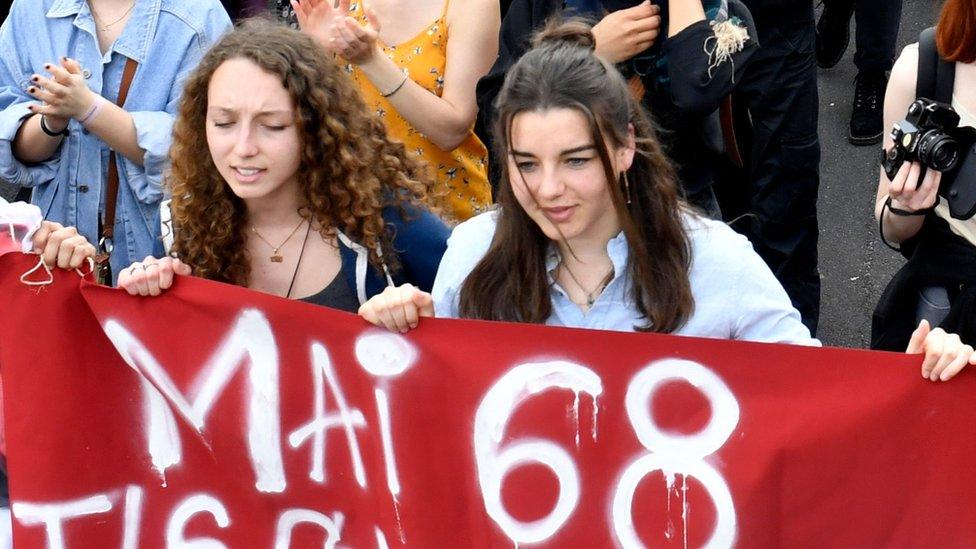Speed limit cut on French roads angers rural voters
- Published
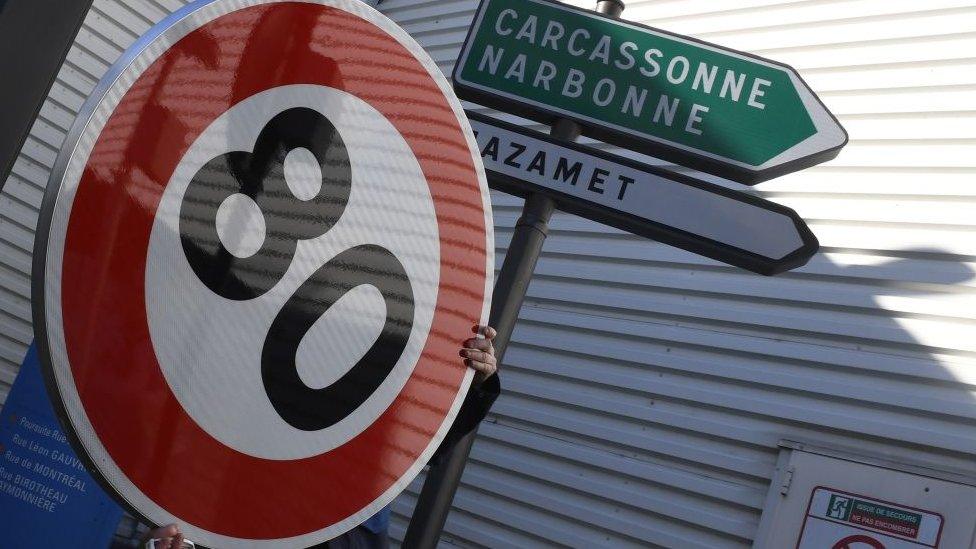
The Macron government's decision to cut the speed limit on country roads from 90km/h (56mph) to 80 is proving deeply unpopular.
Between now and 1 July a mini-makeover will take place on French roads.
About 20,000 signs bearing the number 90 are to disappear. In their place will be new signs, but now inside the red circle will be the lower figure.
A speed-limit cut of 10 km/h on the 400,000km that make up France's so-called "secondary" network is the government's latest salvo in its long-running campaign against road deaths.
According to the road safety department of the interior ministry, the measure should save between 300 and 400 lives every year - principally because braking times will be shorter and any accidents that do occur will be less deadly.
That would mean France could resume the historic trend that reduced the number of road deaths by more than 80% since the early 1970s.
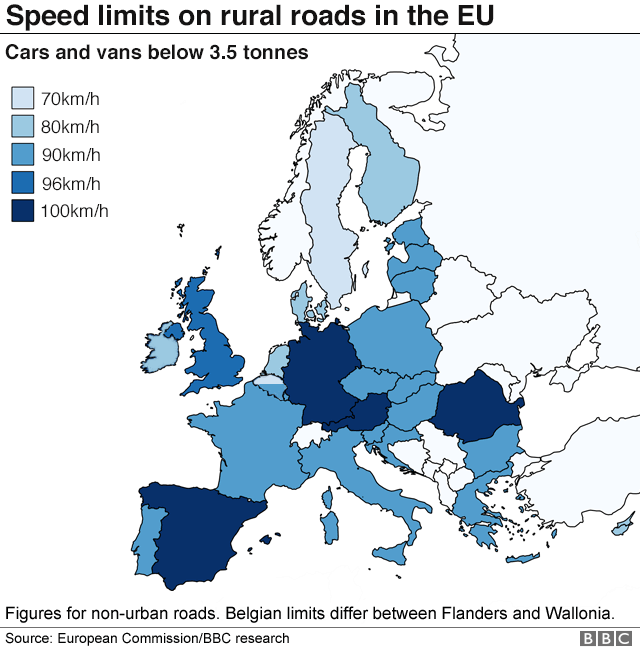

The last big cut in mortality was in the early 2000s when President Jacques Chirac brought in radars and a zero-tolerance policy on speeding. But in recent years the fall has tailed off. In 2017 there were 3,684 lives lost on French roads.
The new measure may be motivated by the best of intentions. But, unfortunately for the government, that is not how most people see it.
Polls show that around the country reaction is hostile and suspicious.
Many drivers say the lower speed limit is unnecessary, based on erroneous analysis, and will complicate their daily lives. Some feel it is a cynical ploy to raise more money from fines.
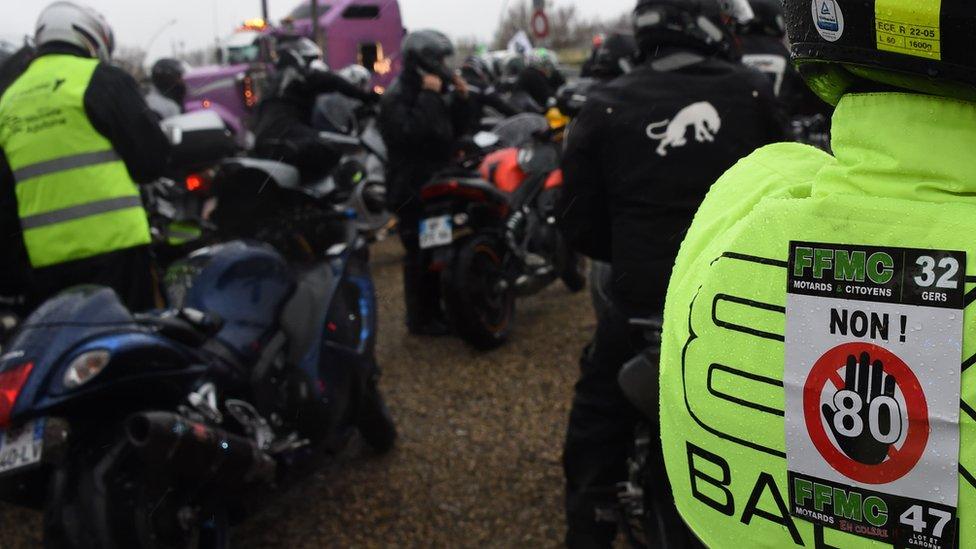
Many bikers, among others, have made plain their feelings about the slowdown
But the most common reaction is that the measure is a typical piece of Parisian bossiness - proof that this supposedly sensitive government of President Emmanuel Macron is every bit as "out of touch" as its predecessors.
"The outcry is strong because it is such a tangible issue for ordinary people. Around 70% of the population is opposed, and there is no sign of that abating," says Jérôme Fourquet of the Ifop polling agency.
"Prime Minister Edouard Philippe is the personality most identified with the reform, because it was his idea from the start.
"But there is a technocratic aspect to it all - the way it's been applied from on high and universally across the whole of the country - that aggravates Macron's image as a 'president of the city'."
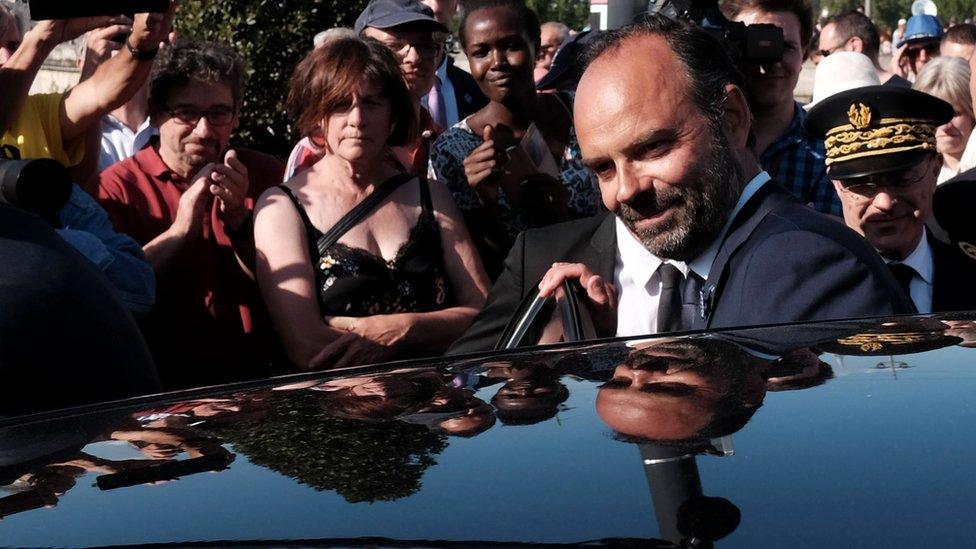
Voters' patience with Edouard Philippe may have its own limits
So deep is the hostility that the speed cut is a rare issue on which supporters of President Macron are prepared to oppose him.
Several MPs from his La République en Marche (LRM) party have joined calls for the law to be adapted so that there is local discretion, and only those roads that are deemed dangerous are subject to the change.
According to Christophe Jerretie, LRM deputy for the rural Corrèze department, the measure will inevitably result in more drivers getting fines and losing their licences. "And in my constituency, no licence means no job."
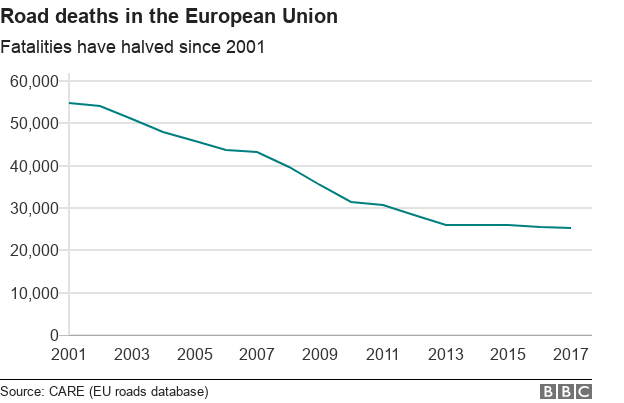

Even inside government there are signs of divisions, as ministers take stock of the potential damage. Interior Minister Gérard Collomb - in theory the man in charge of road safety - recently dodged a question on the speed cut at a press conference, saying he would "play my joker on that one".
Behind the humour, what came across was that the minister is not a huge fan of his own policy.

Macron's France

As for Emmanuel Macron, he seems caught between loyalty to his prime minister and a recognition that the new speed limit may be something of an own goal. He knows the measure is hurting his popularity in rural France, where already he's seen as the quintessential city slicker.
His concession - made in a recent TV interview - is that the 80km/h rule needs to prove its worth. It'll be evaluated after two years. "And if it hasn't worked, we won't keep it."


- Published28 April 2018
